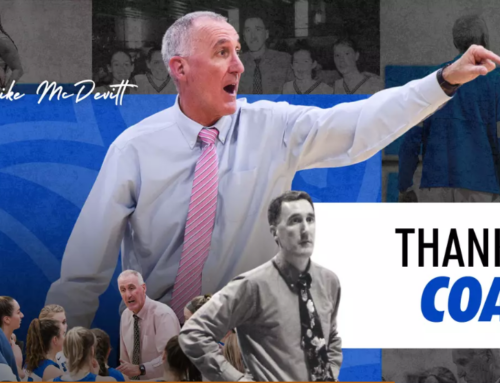From the Office of the President
In 1938, the African-American poet Langston Hughes wrote “Let America Be America Again.”
The poem begins
Let America be America again.
Let it be the dream it used to be.
Let it be the pioneer on the plain
Seeking a home where he himself is free.(America never was America to me.)
Let America be the dream the dreamers dreamed—
Let it be that great strong land of love
Where never kings connive nor tyrants scheme
That any man be crushed by one above.(It never was America to me.)
O, let my land be a land where Liberty
Is crowned with no false patriotic wreath,
But opportunity is real, and life is free,
Equality is in the air we breathe.(There's never been equality for me,
Nor freedom in this "homeland of the free.")
Hughes’ poem, using the language of his time not ours, nevertheless captures the emotion of marginalized people of all races who struggled to find a place in early 20th century America. 80 years after Hughes wrote “Let America Be America Again” we continue to see—daily—the images of pain and suffering his poem captured.
I am the poor white, fooled and pushed apart,
I am the Negro bearing slavery's scars.
I am the red man driven from the land,
I am the immigrant clutching the hope I seek—
And finding only the same old stupid plan
Of dog eat dog, of mighty crush the weak.
The killings of George Floyd, Ahmaud Arbery, and Breonna Taylor and the pain inflicted on peaceful protesters by those in positions of power who should know and be better and by those ready to profit from the suffering of others, are painful reminders of how far we are from dream of this place.
The poem’s central plea is one we instantly recognize.
O, let America be America again—
The land that never has been yet—
And yet must be—the land where every man is free.
But the events of the past week have made one thing abundantly clear.
We can no longer simply ask to “let America be America again.”
Each of us, and all of us, need to make America a place where every person is truly free.
By the end of the poem, Hughes’ speaker has come to this realization.
Sure, call me any ugly name you choose—
The steel of freedom does not stain.
From those who live like leeches on the people's lives,
We must take back our land again,
America!
Inspired by the activism of the Sisters of Mercy and their commitment to the critical concern of anti-racism, informed by Pope Francis’ idea of “integral ecology,” and energized by the courage of peaceful protesters, Saint Joseph’s College is committed to this work—the work of building sustainable communities grounded in radical hospitality.
We cannot simply stand and watch in the hope that something else, someone else will let the dream of America be realized.
Through our actions—large and small, direct and indirect—we either advance the dream or we turn our back on it.
Wherever you are today, please join with Monks everywhere to make our communities safer places for all who continue to believe in the goodness and promise of people committed to integrity, motivated by respect, fueled by compassion, strengthened by faith, and striving for excellence and justice.
Sincerely,
Dr. Jim Dlugos, President, Saint Joseph’s College




